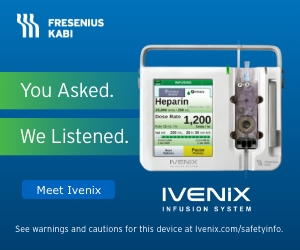Lab ownership is a key driver of health system growth
Why retain your lab? Here are 5 data-driven reasons why retaining your hospital lab can make a powerful impact on the financial well-being of the entire health system.

- Strategic Collaborations: A Path to Expanding Value-Based Care
- Decoding Complex Healthcare Regulations
- Develop Leadership Skills Second to None in Chicago
- Still Time to Save on Your FACHE® Credential
Strategic Collaborations: A Path to Expanding Value-Based Care
As the U.S. healthcare system shifts more from fee-for-service to value-based models, health systems are under increasing pressure to improve outcomes while at the same time control costs.
With more than half of Medicare beneficiaries’ care now tied to value-based models, the Centers for Medicare & Medicaid Services is making significant progress toward its goal of reaching 100% by 2030. Private payors are also following suit.
Delivering efficient value-based care at such scale requires coordinated efforts. High-quality healthcare is a team sport, and strategic collaborations—across sectors and organizations—are emerging as a critical tool.
Successful collaborations begin with shared ambitions rooted in mutual, clearly defined goals. They also depend on trusted relationships, appropriate data-sharing protocols, a culture of collaboration, and operational and financial alignment. Leaders who evaluate potential partners based on these criteria and establish transparent, accountable governance models are positioned for success.
An example is the collaboration between a large urban health system and GSK to improve adult immunization rates, which are historically lower among marginalized communities. These populations also tend to have complex health issues, lower life expectancy and a heavy reliance on emergency care. By co-creating patient outreach programs tailored to the specific needs and hesitancies of this population and coordination across the health system’s care sites, we aim to improve education on preventive healthcare while also improving efficiency, quality and public health outcomes.
For healthcare executives, strategic collaboration is not just an operational tactic, it is a leadership imperative for delivering sustainable improvements. For more information about how GSK is collaborating with health systems, contact Greg Olsen at greg.e.olsen@gsk.com.
GSK, an ACHE Premier Corporate Partner, provided the content above.
Decoding Complex Healthcare Regulations
Navigating healthcare regulations in the U.S. is complicated, with federal and state agencies creating rules that work together yet often contradict one another. To succeed in this environment, leaders must rely on critical thinking and have a tolerance for ambiguity.
In Mastering Healthcare Regulation: A Comprehensive Case Study Approach, leading policy experts Jessica Holmes, Robin J. Lunge, JD, and Betty Rambur, focus not only on how to decipher the regulatory landscape’s complexities but also how to influence regulations, rather than simply being affected by them.
Leaders “must review statutory criteria, assess data, carefully consider multiple viewpoints and, ultimately, provide recommendations with limited information,” write the authors. Mastering Healthcare Regulation outlines the types of regulation and decodes the influences on each type of regulation.
Using a case-study approach, the authors cover current regulatory issues, such as cost containment, consumer protection, payment and delivery system reform, and patient access and safety from the viewpoint of their complementary backgrounds as an economist, attorney and clinician. Read the table of contents and buy digital access here.
Develop Leadership Skills Second to None in Chicago
Leaders who drive change are the ones who are able to adapt to and navigate the internal and external headwinds in healthcare. At the Chicago Cluster Aug. 11–13, experience highly interactive, in-person workshops to expand your presence, enhance your influence and position yourself for greater leadership impact and career growth.
Learn how to evoke a healthy sense of urgency for organizational change with the seminar “Next Level Change Management: Navigating the Next Phase of Healthcare Through Transformative Leadership.” This course covers the appropriate use of incremental versus transformational change to maintain organizational viability.
Personalize your learning experience at the Chicago Cluster by selecting from sessions that cover topics such as community behavioral health, emotional intelligence and hospital physician strategy, to name a few.
You’ll be eligible to earn up to 24 ACHE In-Person Education credits. For a full description of the seminars and to register, visit the 2025 Chicago Cluster.
Still Time to Save on Your FACHE® Credential
Submit your application before June 30 and, if approved, ACHE will waive the $225 Board of Governors Exam fee.
When you become board certified in healthcare management as an ACHE Fellow, you’ll stand out from the crowd as a true professional in the field. Earning the FACHE credential demonstrates you have met rigorous standards and proven your competency in all areas of healthcare leadership.
Take the next step toward elevating your professional status today and learn about the requirements for submitting your application. You’ll find plenty of resources available to help you along the way.


